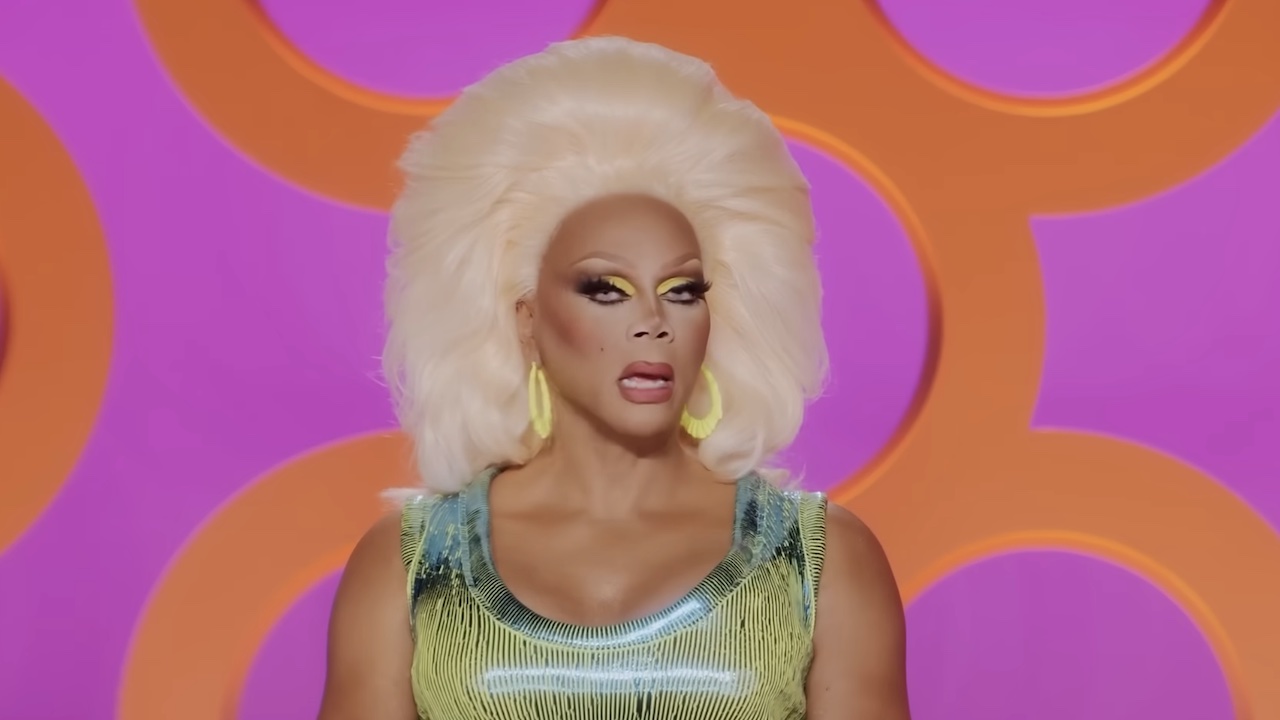Paul Mescal Says He Would 'Avoid' TV Shows. After Watching Almost Everything He’s Been In, I Couldn’t Disagree More
Mescal chooses to “Avoid” TV in game of Shag, Marry, Avoid.
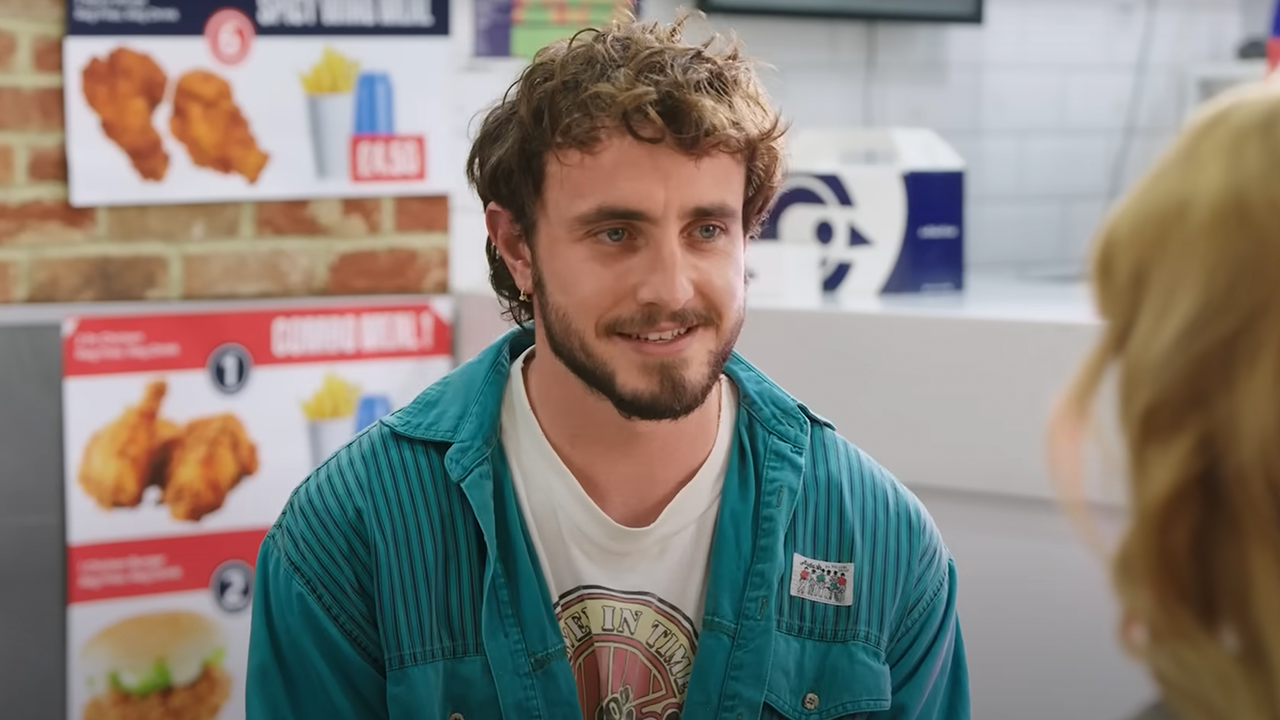
Your Daily Blend of Entertainment News
You are now subscribed
Your newsletter sign-up was successful
Amelia Dimoldenberg answered many fans' prayers with the appearance of Paul Mescal on her popular Chicken Shop Date web series. As well as discussing the subjectivity of romance and alluding to those rumors that he runs away from his one night stands, in a game of "Shag, Marry, Avoid" (perhaps more familiarly known as "F--k, Marry, Kill" to non-Brits), Mescal chose to 'avoid' TV, opting to 'shag' movies and 'marry' theater.
This Chicken Shop Date moment left me dismayed, because there is one role that remains his best role – or at least my favorite of his work anyway. And it just so happens to be a TV show. Normal People.
One of my fellow CinemaBlend writers Jessica Tisdale deemed Aftersun Paul Mescal’s best role in our round-up of his work, but the Charlotte Wells movie doesn’t sit as highly in my book.
Aftersun may have earned Mescal his first nod from the Oscars, but it's not his best performance. There, I said it.
Don’t get me wrong, this isn’t me saying Aftersun is a bad movie. It’s not. I liked it. But I’ve watched almost everything else Paul Mescal has been in since his rise to fame with the Covid-phenomenon that was Normal People, and I will die on this hill that his embodiment of Connell Waldron from the Sally Rooney bestseller remains his most stunning role to date.
Why? Because I think as Connell Paul Mescal put himself on the map as a male actor that embodies the vulnerability bursting at the seams and threatening society’s idea of masculinity, and it still holds up as one of his most sweeping and beautiful roles nearly four years on.
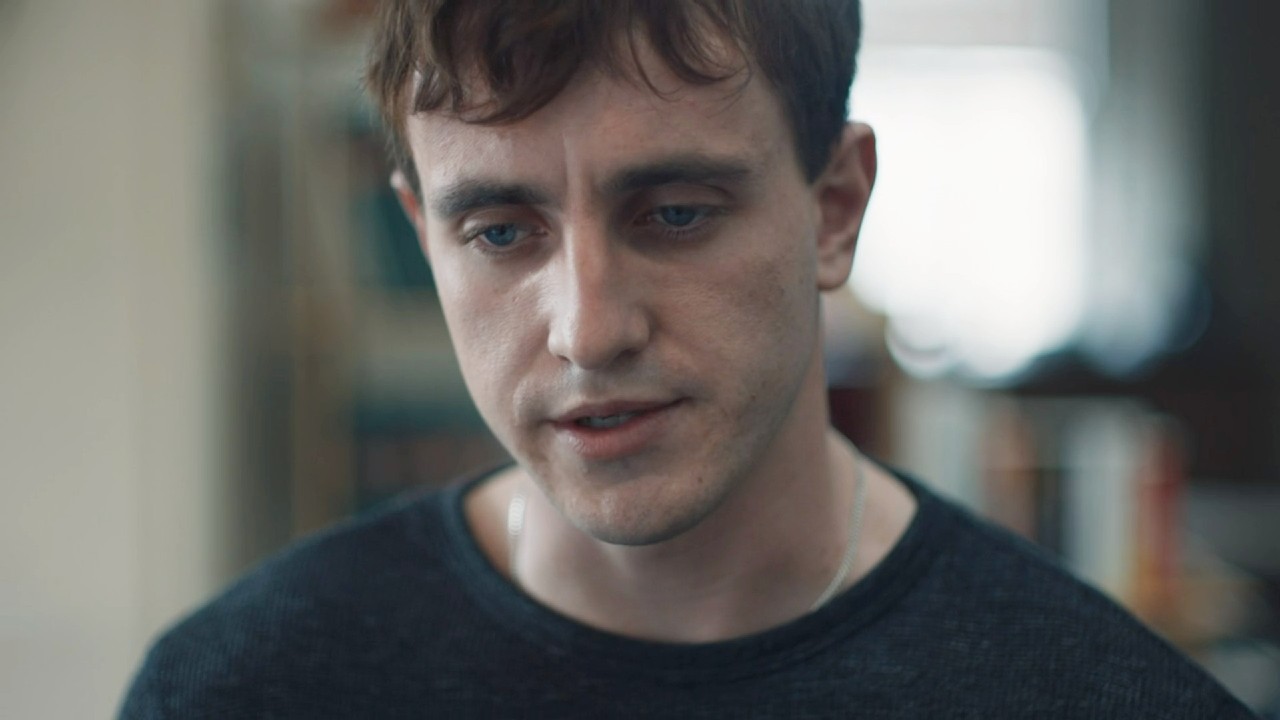
I Think Paul Mescal Is Wrong About His TV Impact, And It Comes Down To Male Mental Health Awareness
The character of Connell is incredibly multifaceted in its vast encapsulation of the human experience, while happening in the comparatively narrow window of a young man aged 16 to 21.
Your Daily Blend of Entertainment News
While there is clearly something of a theme in the roles Mescal portrays – dubbed “the sexy, sad genre” by Dimoldenberg during his Chicken Shop Date – even as his first role, I think his performance in Normal People highlights all the key themes and emotions he’s gone on to convey and earned critical acclaim for in his other work. Apart from, perhaps, the antagonistic Stanley in his theater run of A Streetcar Named Desire in London’s West End (the very role that’s bagged him a place on the cast list of Ridley Scott’s Gladiator 2).
Take Aftersun for instance. Charlotte Wells’ directorial debut sees Mescal portray Calum, the young father of Sophie (Frankie Corio) on holiday in Turkey and on the cusp of his 31st birthday. Amongst the themes of coming-of-age and father-daughter relationships, Mescal’s character spins a weighty battle with mental illness, Aftersun's ambiguous ending alluding to Calum’s eventual suicide.
This is an undeniably powerful and moving depiction of mental health, but I found we went on even more of a journey with Connell in Normal People, initially moulded by the expectations of his peers and his small Irish-town upbringing, ultimately following him through periods of depression, anxiety, and loneliness as he battles with his sense of self and transitioning from high school to university.
The scene in Episode 10 of Normal People, in which Connell attends counselling, following the suicide of his school friend Rob, is particularly poignant. He sits opposite Noma Dumezweni, who portrays Gillian, his therapist, working through the loss of Rob and the ways in which they did and didn’t click at school and yet ultimately accepted each other.
Mescal’s performance is incredibly raw, offering up an image of a 21st century man able to openly cry and examine his feelings and relationships. This, in contrast to the character’s earlier inability to communicate with love interest Marianne (played by Daisy Edgar-Jones) shows real change in his emotional maturity.
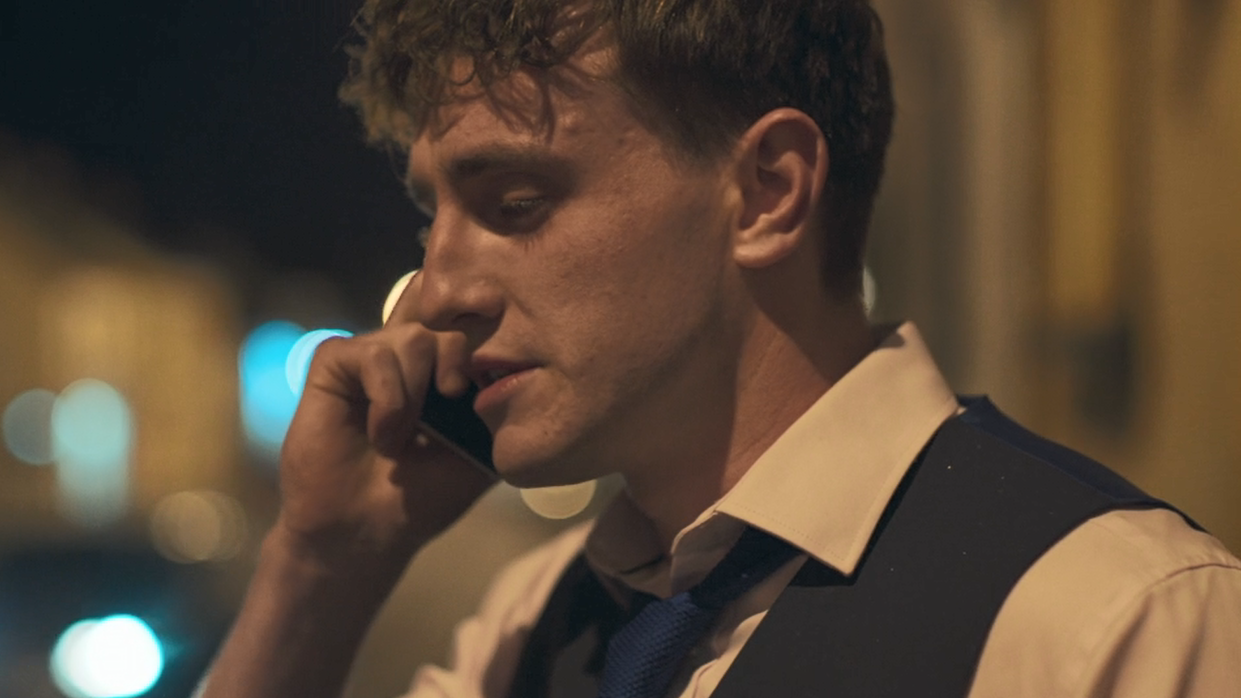
It's An Honest Portrayal of a Teenager By A Twenty-Something I'll Never Get Over
It happens in a lot of TV shows and movies about teenagers – the actors are usually a good 5-10 years removed from experiencing that period in their lives. And, where that isn’t the case, the acting isn’t always, dare I say it, that… good. While Paul Mescal would’ve been around 24 when Normal People came out, his characterisation of a 16-year-old Connell turned back the years, so convincing that you’d barely guess at the eight year gap. Barely.
We see teenaged Connell wrestle with the desire to simply fit in and avoid the ridicule of his mates. While a bit of a wallflower, he’s also incredibly popular, so to like or in any way be associated with the uncool, decidedly oddball Marianne Sheridan is a no-go. He chooses, then, to keep their budding relationship a secret, coming to blows with his own mother and ultimately burns Marianne one too many times, with his failure to invite her as his date to “the debs” (a formal ball for high schoolers in Ireland) being the final straw.
In Episode 3 he learns the hard truth that his mates had always known something was going on between the two of them and that they wouldn’t have cared if he admitted to liking Marianne. By this point, though, it’s too late, and Connell has already pushed her away to the point of not attending the final weeks of school or answering any of his texts or phone calls.
The episode ends with Connell leaving Marianne an answerphone message while drunk and sobbing, desperately missing her.
Again, Mescal’s performance is unmatched. He manages to convey the crippling anxiety of trying to get through the most gruelling years of adolescence unscathed, as well as the inability we often have at that age to find the language to speak up for what we want and believe in for fear of being bullied, or simply wording it all wrong. This is something that comes up multiple times for Connell’s character and that Mescal hones in on in his portrayal of Connell’s hesitant disposition.
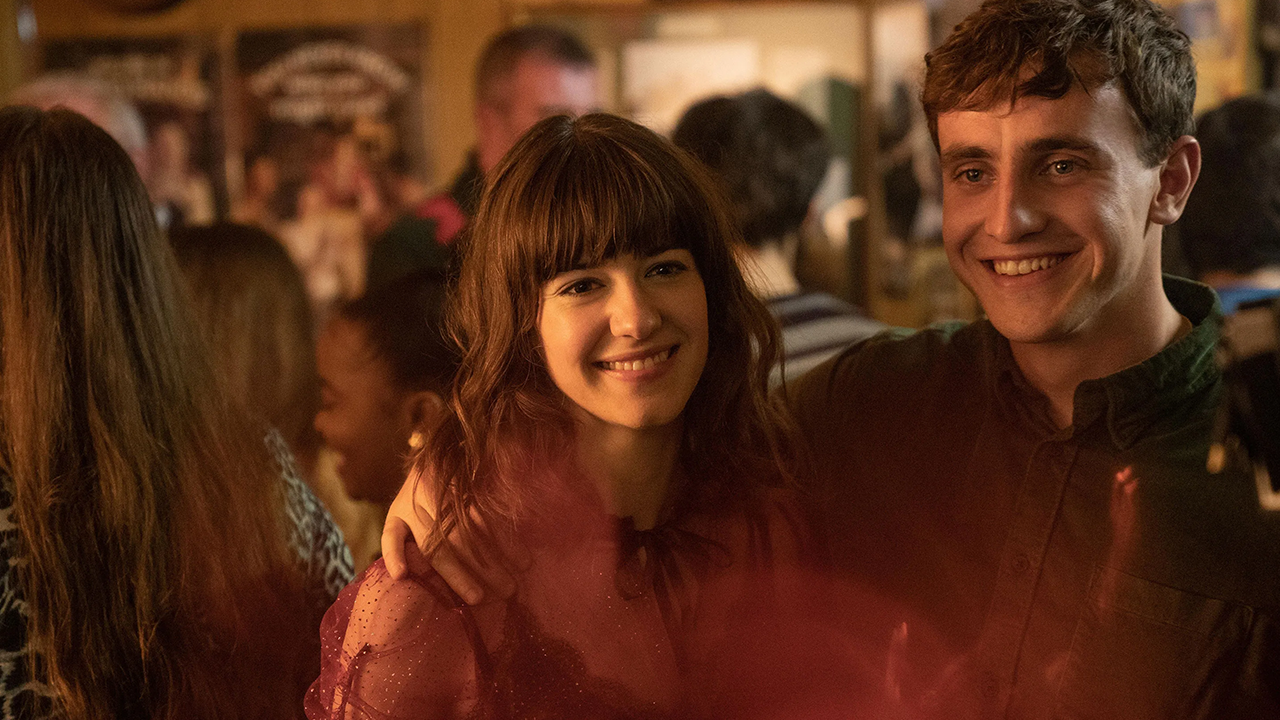
The Authenticity And Awkwardness Of Connell And Marianne’s Early Relationship Completely Moved Me
I can’t talk about how good Paul is as Connell without talking about his relationship with Marianne, and how Paul and Daisy conveyed this together. I mean, it’s literally the entirety of the book and its plot, seeing two characters wrestle with miscommunication and near-misses over the years, from teenagers to young adults in their early twenties.
Simplified like that, it’s perhaps the most frustrating sell for a plot ever. Why can’t these two people who are clearly meant to be together just adequately express themselves and live happily ever after? Well, because that’s just not how life works, is it?
What is true to life, though, is Normal People’s portrayal of those early, yet life-altering, romantic relationships we experience. They are enrapturing, and Paul and Daisy’s chemistry spits and cracks off the screen.
What charms me the most about their performance, though, is the way they navigate Connell and Marianne’s physical intimacy, from the first kiss to the much-talked about sex scenes.
Far from the perfectly tossed and quaffed hair, porno-worthy grunts and moans, and synchronized ease of Hollywood, there is much more, well, giggling. The nervous kind. There is the questioning of “Is this okay?” and the accompanying reassurances. There is – shock horror – birth control chat. And, you know what? It’s still sexy even with all those often perceived faux-pas. It is sincere and relatable and that carries throughout the show’s run, adding to and remaining true to Sally Rooney’s original text.
Admittedly, I also adored the chemistry between Paul and Andrew Scott in his latest triumph All of Us Strangers, with another ending that was completely gut wrenching and may very well give Aftersun a run for its money (an opinion piece for another day). But… but, but, but! It’s just nothing like the attachment I have to Normal People.
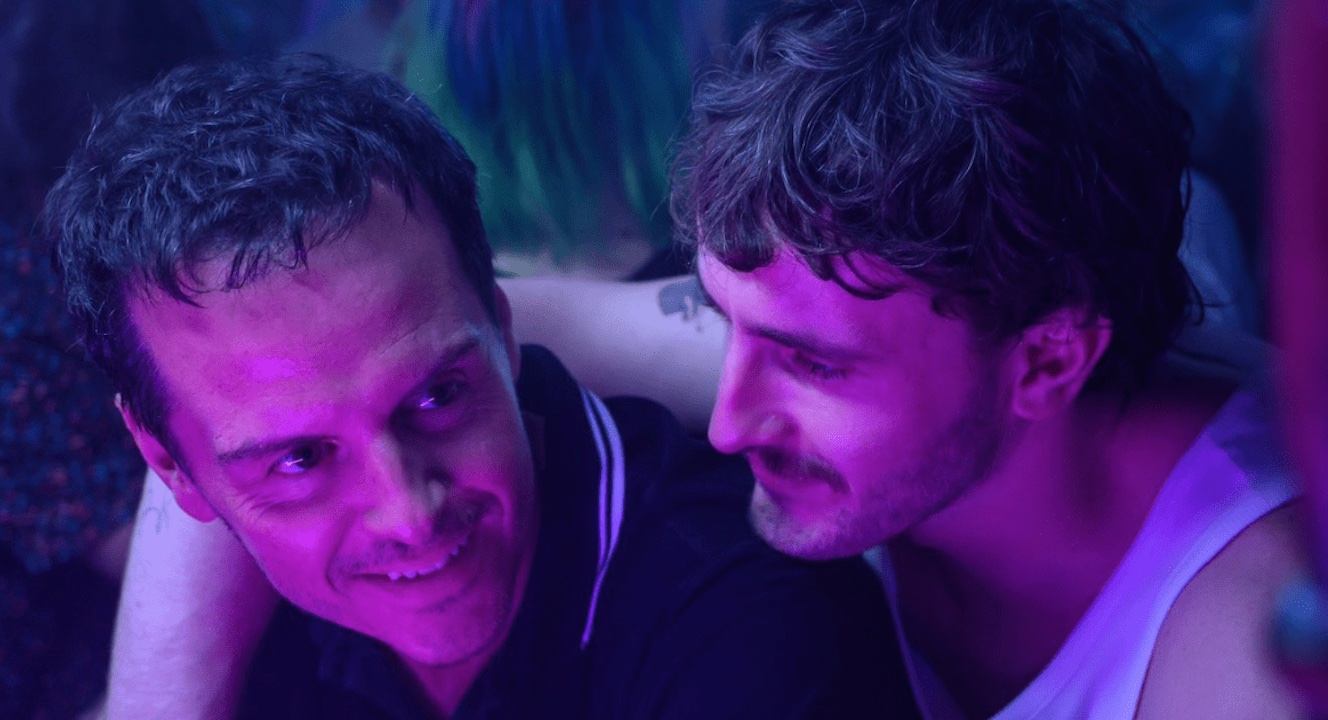
Much like Paul Mescal has a preference for acting in movies and on the stage, I have a preference for watching TV shows over films. It makes sense when you consider I’m also a fan of a chunky book, allowing me to spend prolonged amounts of time with the same characters so that they grow acutely familiar to me. So perhaps that plays into why I think Normal People is his best role.
While Mescal didn’t clarify his reasoning for why he chose to 'avoid' TV during his Chicken Shop Date appearance, one would suspect it comes down to the kinds of creative projects he’d put his name in the ring for. Arguably film and theater are deemed more superior art forms than TV. But still. Justice for Normal People.
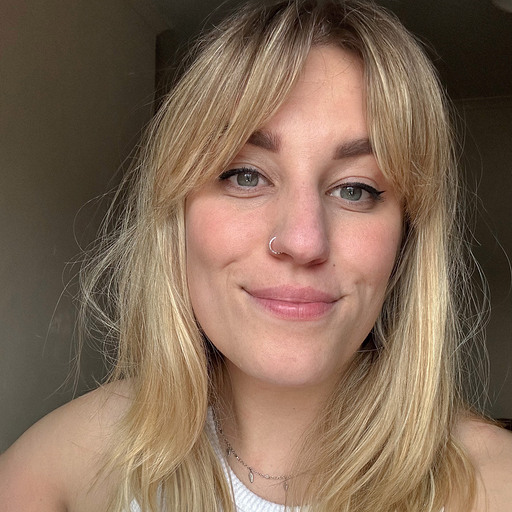
Alice is CinemaBlend's resident eCommerce Editor, here to tell you about the best streaming services like Disney Plus and Apple TV Plus, and how to watch the hottest TV shows and movies. Begrudging Love Island fan and always thrilled about the latest book to screen adaptation. With six years experience in the commercial writing space, Alice has been writing about consumer tech and software for 4 years, previously writing for Trusted Reviews before joining the Future family.
